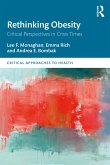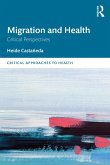This applied clinical medicine and public health text introduces the fundamental concepts in epidemiological investigation and demonstrates how to integrate emerging research on epigenomics into practice.
Epidemiology has a vital strategic role in facilitating and leading evidence discovery in all aspects of human health, with the intent of improving patient and public health through disease control and health promotion practices. It emphasizes what we now know about the transformation the human body and the ecosystem undergo as a result of social structure, environment, daily challenges and mutation. The first part of this text explores the origin of epidemiology, its relationship with medicine and public health, and its role in assessing disease distribution as occurrence or frequency, risk factors, treatment and management. The main direction of this text is to explore the assessment of how gene and environment interactions, termed epigenomic modulations, aberrantlypredispose to morbidity, prognosis, survival and mortality at the individual as well as the specific population level.
This text presents a novel approach based mainly on epigenomic modulations in the application of epidemiologic investigation in disease incidence, morbidity and mortality at a specific population level for graduate education in public health and clinical sciences as well as medical education.
Epidemiology has a vital strategic role in facilitating and leading evidence discovery in all aspects of human health, with the intent of improving patient and public health through disease control and health promotion practices. It emphasizes what we now know about the transformation the human body and the ecosystem undergo as a result of social structure, environment, daily challenges and mutation. The first part of this text explores the origin of epidemiology, its relationship with medicine and public health, and its role in assessing disease distribution as occurrence or frequency, risk factors, treatment and management. The main direction of this text is to explore the assessment of how gene and environment interactions, termed epigenomic modulations, aberrantlypredispose to morbidity, prognosis, survival and mortality at the individual as well as the specific population level.
This text presents a novel approach based mainly on epigenomic modulations in the application of epidemiologic investigation in disease incidence, morbidity and mortality at a specific population level for graduate education in public health and clinical sciences as well as medical education.









